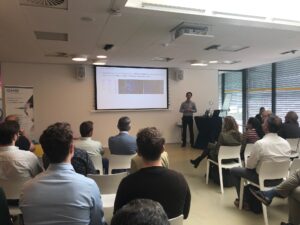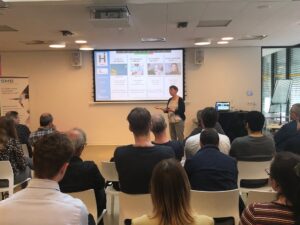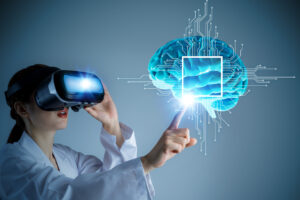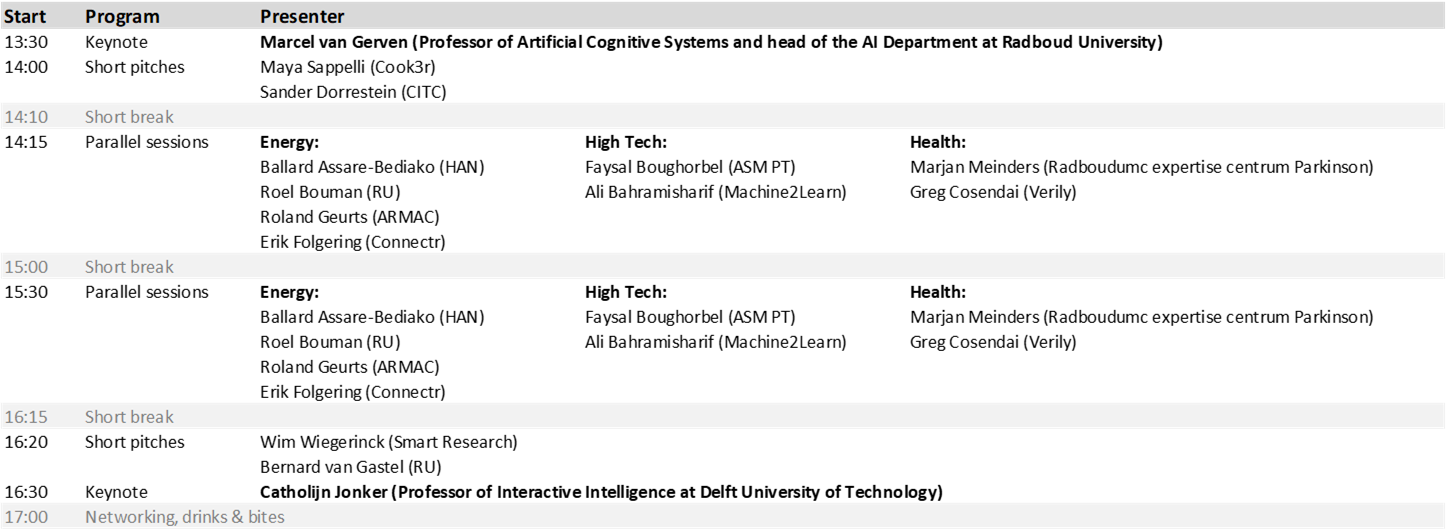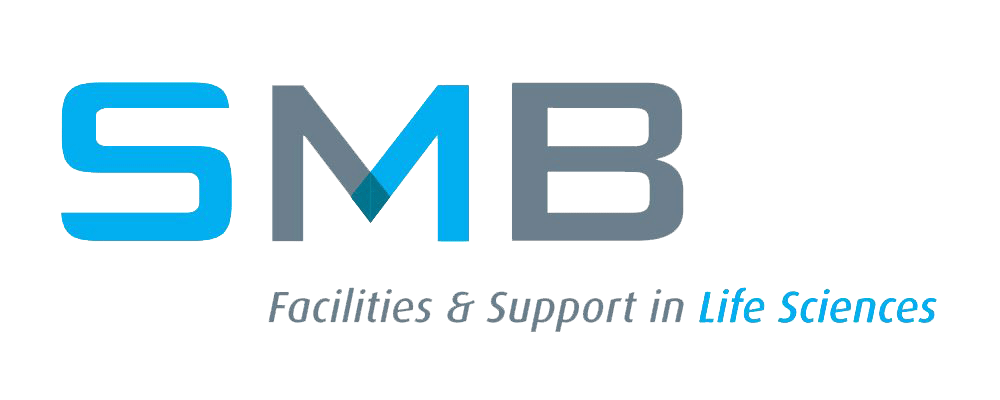Innoboot is our annual seminar organized by Briskr, Radboud University, RadboudUMC and the HAN. This year the theme was about the disruptive effects that AI has in the most important economic clusters in the region: Health, High Tech and Energy.
The first keynote was from Marcel van Gerven, Professor at Radboud University with the title “Brain inspired computing”. At Donders Institute, a cooperation between Radboud University and RadboudUMC, they try to learn from the human brain and translate this into advanced and more versatile AI approaches. Our brain is not a brute force machine (we would not be able to supply the energy) but has advanced approaches to predict and follow-up on the best paths. This research leads to more promising algorithms as well as better suited hardware, for example devices that help blind people see though a camera and feeding the brain with signals through implants.
We organized parallel sessions for each cluster:
Energy
Energy grids (electrical, but also heat networks, etc.) are rapidly becoming more complex and instable. Tackling the challenges involved requires the application of advanced data-driven technologies, with AI as a spearhead. In practice, even seemingly small interventions can have a big impact on efficiency, sustainability and robustness of energy networks. Such interventions are increasingly possible ánd needed in real time: immediate response based on information from many sensors, smart meters and human-centred controls. The challenges are not only technical: data availability and quality also involve organisational and individual involvement and commitment. The related human capital challenges include education of data-knowledgeable professionals, beyond IT and data experts alone.
Health
At Radboudumc a large research project on Parkinsons disease is underway together with Verily, a Google subsidiary that has developed a “watch” with 8 monitoring sensors. These sensors are used to find “digital biomarkers” by interpreting the raw data with AI. By realtime tracking of the Radboudumc parkinson cohort and using Verily data as a control group they will be able to monitor changes in health in realtime and adapt treatment. Next to the functional possibilities a project like this also shows that privacy by design is an important element in the setup of such a project.
High Tech
Will AI ultimately lead to ‘lights out factories’ without any human activity? This question was raised by ASMPT in the high tech sector. It is clear that at this moment the challenge is to create smart factories, combining human intelligence and artificial intelligence. AI has great potential for predictive maintenance and mobile robots, and can also be used to process large amounts of data (images) for quality control purposes. Machine2Learn, a Radboud University spin-off specialized in vision and inspection, works closely together with ASMPT. They also showed the importance of sharing knowledge between different sectors: next to innovations in high tech, they also work on applications in e.g. the chemical, agricultural, cultural and heath sector.
The final keynote was from Catholijn Jonker, professor at TU delft who addressed the ethical use of AI. As all technologies AI can be used for good or for bad, so how do we incorporate ethics from the start? For example, do we design cars to save the driver at all costs or do we save the pedestrians in case of a likely collision? An important approach is to design hybrid systems where the humans still have meaningful control over outcomes. Understanding why the system behaves as it does is important as well as reflection on it’s actions (are the outcomes acceptable from a broader standpoint).
In between the talks there were pitches on several AI projects in Nijmegen and Arnhem: Cook3r on the use of AI to help people with dementia with cooking, CITC on using AI to come up with better design and packaging solutions, Radboud University on how to use AI in identifying victims based on DNA information. The last pitch explained how we also should realise that AI often uses large amounts of computing power and thus energy use.
All in all interesting presentations and discussions on the forward looking research taking place in our region. We hope to see you all at Innoboot 2023!

